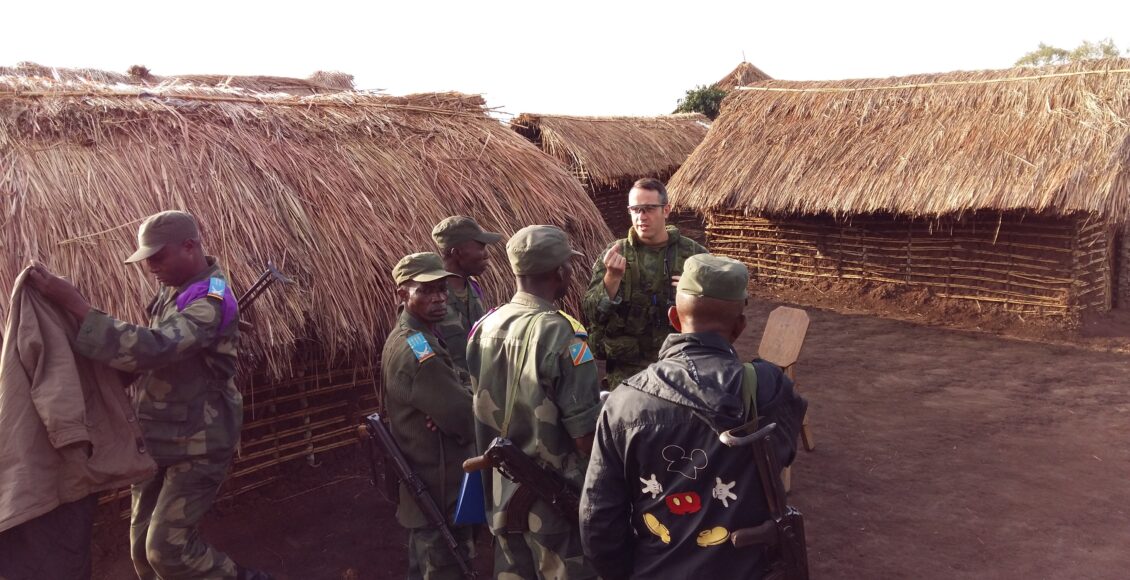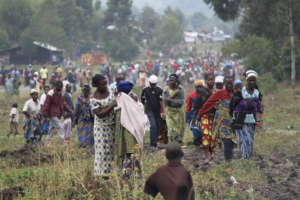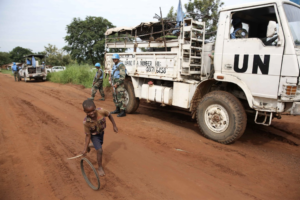As a 3-Decade War Continues in the Congo, the World Looks Away

In December of 2023, the Democratic Republic of Congo (DRC) reelected Félix Tshisekedi as president in a hotly contested election. Voters in parts of Eastern Congo were not able to vote due to the ongoing conflict there. Since the mid-1990s, when the First and Second Congo Wars broke out, violence has plagued the region. The Second Congo War alone was the deadliest in the world since World War II, but many analysts and experts view current hostilities as part of one long conflict spanning nearly thirty years. Since he came to power in 2019 under dubious circumstances, one of Tshisekedi’s promises has been to end the violence in Eastern Congo. The conflict has intensified since then, and tensions with neighbouring Rwanda have worsened. Now, the Congolese government, frustrated by stymied progress, has asked the UN peacekeeping mission in Eastern Congo, MONUSCO, to leave by the end of 2024. The East Congo War risks being forgotten by the rest of the world. As Western leaders deal with domestic strife and worry about the risks of China, Iran, and Russia, they neglect the festering humanitarian crisis in Eastern Congo—at civilians’ peril.
The war in Eastern Congo encompasses many protracted armed conflicts in the provinces of North Kivu and South Kivu which border Uganda, Rwanda, and Burundi. It has claimed over six million lives and displaced nearly seven million people since 1996, when the First Congo War started. The mineral-rich region of mountains and rainforest has been fought over by various armed groups and national armies since then. Massacres and mass rapes have been visited upon civilians.

The conflict’s origins are in the 1994 Rwandan genocide, when members of the Tutsi minority ethnic group were killed by the Hutu regime that had just gained power. The Rwandan Patriotic Front, a Tutsi militia led by Paul Kagame, the current Rwandan president, drove the Hutu extremists from power. This created a refugee crisis, and more than a million Hutus fled into neighboring Zaire, now the DRC, fearing vengeance. They filled massive refugee camps where tens of thousands died of cholera. Some of those Hutus were the genocidaires who had prosecuted the attacks on Tutsi. They were planning an insurgency to topple Rwanda’s post-genocide government. The Hutu genocidaires in Eastern Zaire received support from the then Zairean president, Mobutu Sese Seko, and were given control of the refugee camps by the UN High Commissioner for Refugees. They turned these camps into military bases from which to launch raids into Rwanda to kill Tutsi civilians.
In 1996, the Tutsi-dominated Rwandan military invaded Zaire to pursue Hutu militiamen—though they also targeted civilians—instigating the First and Second Congo Wars. Since then, war has become a fact of life in the region, as various groups have exacted revenge on one another, and sought to control valuable resources like gold, oil, and coltan. It was in response to this that MONUSCO was created in 1999 (originally under the name MONUC), with the goal of protecting civilians and preventing escalation in the region. Many in the DRC now view it as ineffective.
The conflict is largely split along ethnic lines, and the current main front is the fight between militants from the March 23 Movement (M23), who are supported by Rwanda and claim to defend Congolese Tutsis, and various groups affiliated with the Congolese military (FARDC), including the UN peacekeepers. One priority of FARDC and MONUSCO is protecting Goma, the city in which the peacekeepers are based. Goma is also a key mineral trading hub, one of the biggest cities in the region, and the capital of North Kivu. M23 has committed rapes and unlawful killings, according to Human Rights Watch. The group has also looted and destroyed property, abducted men for possible impressment, and forced people to work without pay, according to people living in areas controlled by the militia. Armed groups opposing M23 have also committed war crimes. President Tshisekedi imposed martial law on the region in 2021, but this has not stopped the massacres. So far, the Congolese military and the UN have also been largely unable to limit the conflict. But to throw our hands up in despair would only signal to the belligerent parties that they are free to continue exploiting Congo’s resources and decimating civilian life. One of the most telling examples of Western apathy toward this war is the reluctance to sanction Rwanda for its support of M23, particularly by British Prime Minister Rishi Sunak, who seeks to deport UK asylum seekers there.
Rwanda denies any connection with M23. However, a 131-page report by the UN provides evidence of Rwandan troops crossing into Eastern Congo and jointly attacking a Congolese military base with M23 militants. Along with historical and ethnic grievances, monetary incentives motivate these Rwandan troops. Evidence suggests they’re smuggling minerals across the border into Rwanda to be exported. Between 10 and 20 tonnes of gold are smuggled out of the DRC every year. Rwanda is one of the world’s biggest coltan exporters, despite having few coltan-producing mines. The UN has documented the illegal trafficking of minerals from Eastern Congo into Rwanda.
M23 militants have recently advanced into villages within 35 kilometres of Goma, and have reportedly taken the hills surrounding Saké, the last remaining town in their path to the city. The decades-long conflict in Eastern Congo has been deemed too complicated, too deeply rooted, and too difficult to solve by most in the West. Despite being far deadlier, the conflict in the Congo does not get nearly the same amount of coverage in Western media as other conflicts like the Russo-Ukrainian war or the Syrian civil war—all of which deserve attention. The moribund UN peacekeeping force is not strong enough to protect civilians and does not have the mandate or capacity to bring an end to this conflict. It lacks local and international support because this conflict is not prioritized on the docket in Washington, London, or Paris.
The DRC’s request for MONUSCO to leave the region does not bode well for civilians in the east of the country. In Eastern Congo, ethnic rivalries keep the bloodshed coming, and the trafficking of valuable minerals gives armed groups an incentive to take over more land. Rishi Sunak has been unwilling to criticize Rwanda’s role in the war in Eastern Congo due to his asylum seeker deportation plan. Canada has also been reluctant to criticize Rwanda and has friendly relations with President Kagame. There are, however, nine Canadian officers in Goma helping MONUSCO plan to protect the city from M23.

There is a hesitancy in the West to use military intervention to solve complicated, far-away issues. The United States’ disastrous interventions across Latin America, in Afghanistan, and in Iraq come to mind. But the Congo’s problems will not be solved by humanitarian organizations and loans from development banks. It is implausible for a country to develop economically and provide basic services to its citizens if it is plagued by violence. Addressing the root causes of the violence must come first. This means that countries like the United States and Canada will have to commit diplomatic and military resources to solving the East Congo War.
Western heads of state like Rishi Sunak and Justin Trudeau will have to place the lives of Congolese civilians above their immediate political concerns. Rwandan President Paul Kagame and his military must be sanctioned for their support of M23. An international plan must be created to defeat M23 and ensure lasting peace in the region. If not, civilians will continue to suffer while the world looks away.
Edited by Clare Rowbotham.
Featured image: “Ituri Province DR Congo” by MONUSCO Photos is licensed under CC BY-SA 2.0.
